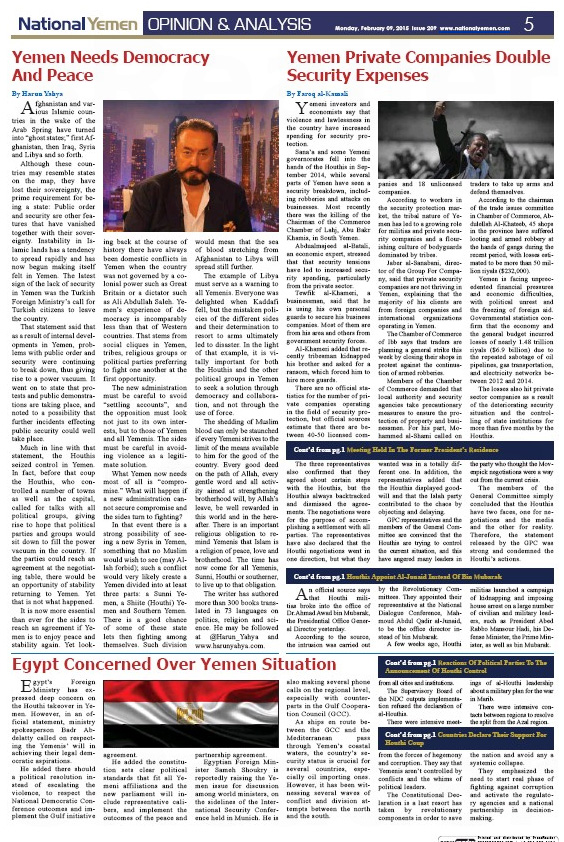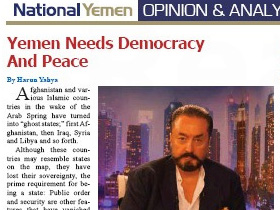
Afghanistan and various Islamic countries in the wake of the Arab Spring have turned into “ghost states;” first Afghanistan, then Iraq, Syria and Libya and so forth.
Although these countries may resemble states on the map, they have lost their sovereignty, the prime requirement for being a state: Public order and security are other features that have vanished together with their sovereignty. Instability in Islamic lands has a tendency to spread rapidly and has now begun making itself felt in Yemen. The latest sign of the lack of security in Yemen was the Turkish Foreign Ministry’s call for Turkish citizens to leave the country.
That statement said that as a result of internal developments in Yemen, problems with public order and security were continuing to break down, thus giving rise to a power vacuum. It went on to state that protests and public demonstrations are taking place, and noted to a possibility that further incidents effecting public security could well take place.
Much in line with that statement, the Houthis seized control in Yemen. In fact, before that coup the Houthis, who controlled a number of towns as well as the capital, called for talks with all political groups, giving rise to hope that political parties and groups would sit down to fill the power vacuum in the country. If the parties could reach an agreement at the negotiating table, there would be an opportunity of stability returning to Yemen. Yet that is not what happened.
It is now more essential than ever for the sides to reach an agreement if Yemen is to enjoy peace and stability again. Yet looking back at the course of history there have always been domestic conflicts in Yemen when the country was not governed by a colonial power such as Great Britain or a dictator such as Ali Abdullah Saleh. Yemen’s experience of democracy is incomparably less than that of Western countries. That stems from social cliques in Yemen, tribes, religious groups or political parties preferring to fight one another at the first opportunity.
The new administration must be careful to avoid “settling accounts”, and the opposition must look not just to its own interests, but to those of Yemen and all Yemenis. The sides must be careful in avoiding violence as a legitimate solution.
What Yemen now needs most of all is “compromise.” What will happen if a new administration cannot secure compromise and the sides turn to fighting?
In that event there is a strong possibility of seeing a new Syria in Yemen, something that no Muslim would wish to see (may Allah forbid); such a conflict would very likely create a Yemen divided into at least three parts: a Sunni Yemen, a Shiite (Houthi) Yemen and Southern Yemen. There is a good chance of some of these statelets then fighting among themselves. Such division would mean that the sea of blood stretching from Afghanistan to Libya will spread still further.
The example of Libya must serve as a warning to all Yemenis. Everyone was delighted when Kaddafi fell, but the mistaken policies of the different sides and their determination to resort to arms ultimately led to disaster. In the light of that example, it is vitally important for both the Houthis and the other political groups in Yemen to seek a solution through democracy and collaboration, and not through the use of force.
The shedding of Muslim blood can only be staunched if every Yemeni strives to the limit of the means available to him for the good of the country. Every good deed on the path of Allah, every gentle word and all activity aimed at strengthening brotherhood will, by Allah’s leave, be well rewarded in this world and in the hereafter. There is an important religious obligation to remind Yemenis that Islam is a religion of peace, love and brotherhood. The time has now come for all Yemenis, Sunni, Houthi or southerner, to live up to that obligation.
Adnan Oktar's piece on National Yemen


